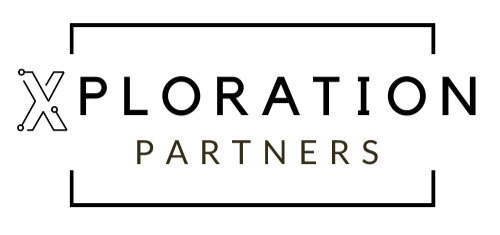5 Consumer Healthcare and Wellness Technology Trends To Watch In 2021
Image Source: HealthTap | Josh Shiau and Eugene Tonev
National health spending is projected to grow at an average annual rate of 5.4% from 2019 to 2028, reaching $6.2 trillion by 2028, according to the Center for Medicare & Medicaid Services. Drivers contributing to expanding costs of healthcare in the United States include the prevalence of chronic diseases, rising obesity rates, and a growing elderly population.
Traditional provider-based medicine is not keeping up with the evolving needs of the population, giving rise to startups developing innovative new solutions designed to improve personal health & wellness at a lower cost. VC and strategic corporate partnership activity within the health & wellness technology space has increased significantly as individuals, companies, and government agencies increase initiatives to proactively prevent health conditions at a reduced cost.
Here, we highlight 5 trends that healthcare business executives should consider when developing their strategic roadmap:
1. Precision Health
Precision health is the use of a wide range of data including genetics, lifestyle, real-world environments, behaviors, biometrics, genomes, medical history, and social determinants of health to predict the likelihood of future illness as well as recommend actions and interventions to identify the optimal health pathway for individuals. Optimally, precision health interventions will cure illnesses before they happen through wellness and prevention efforts.
The implication is that the business model of today's healthcare system that relies on repair care episodes will shift to one that generates more revenue earlier in the process at the illness onset. Business executives in life science and healthcare organizations should become collaboratively engaged in monitoring precision health technology developments. They should keep precision health concepts top of mind as they establish population health management approaches and invest within precision medicine platforms.
2. Virtual Health Assistant
Virtual health assistants (VHAs) use AI technology, instead of a human clinician, to guide the patient through daily activities needed to remain compliant with health and medical needs. VHAs can initiate an interaction with a patient to remind them to perform an activity such as taking a glucose or blood pressure reading, weighing in, or properly taking a medication. Additionally, they can interpret an individuals mood using sentiment analysis, which is critical for behavioral health. VHAs can monitor patients remotely and trigger alerts or recommend intervention by an appropriate clinician if needed.
The pandemic has accelerated the adoption of VHAs due to its ability to detect COVID-19 symptoms and diagnose patients remotely and automatically. Startups in this space include Babylon and Sensely. Executives in the healthcare industry should incorporate VHAs as part of their digital-care delivery strategy. VHAs will be used to increase productivity and "time to care" for clinicians, while reducing costs associated with noncompliance in chronic and acute conditions.
3. Emotion AI
Emotion AI technologies (also known as affective computing) use AI to analyze the emotional state of an individual. Emotion AI technologies have already been adopted by various business functions in different industries, including call centers who use it to improve the customer experience or insurance companies who use it to detect fraud.
This technology has several use cases for the healthcare industry such as helping physicians diagnose depression and dementia or incorporating the technology into personal assistant robots to make them appear more human. Startups in this space include audEERING and Intelligent Voice. Given the technology’s success in other industries, business executives in the healthcare industry should consider piloting this technology in specific use cases and select a startup partner that has experience in the desired use case.
4. Automated Patient Decision Aids
Automated patient decision aids (APDAs) use cognitive AI, with insights gained from patient history or from interactive questionnaires, to understand the top priority critical issues that need to be discussed with a physician or a healthcare professional. APDAs then educate patients by providing evidence-based insight personalized to reflect the unique needs of the patient, enabling them to be ready and able to make a decision faster during their brief interaction with their physician.
Startups in this space include HealthTap and 98point6. Executives should consider adopting APDAs since they help to improve patient engagement and loyalty as well as reduce variability in care, improve outcomes, and increase the satisfaction of patients.
5. Immersive Technologies
Immersive technology refers to the use of virtual reality (VR) and augmented reality (AR) technologies to enhance the patient experience as well as train healthcare professionals in a more realistic setting. The adoption of AR and VR technologies have demonstrated significant outcomes, and clinical evidence for more advanced use cases are emerging.
Examples of startups in this space include:
Mindmaze - uses VR headsets and brain imaging to help stroke victims recover after an injury.
Vivid Vision - helps to treat and correct crossed eyes and vergence disorder using VR headsets.
Augmedics - helps surgeons visualize a patient’s spinal anatomy during procedures, making it easier to install spinal implants, using their AR headsets.
Osso VR - combines its software with Oculus Rift headsets to train surgeons and medical students on orthopedic procedures.
Contact us if you’re looking to explore more health tech trends & understand their impact on your business:
Amid unprecedented uncertainty and change across the health care industry, stakeholders are looking for new ways to transform the journey of care.
Leveraging our network in the startup and technology ecosystem, our team continuously stays up to date on the latest healthcare trends. We turn complex market and industry data, around your key areas of interest, into meaningful insights that will unlock both short and long-term sustainable growth for your business.
You may also be interested in:











